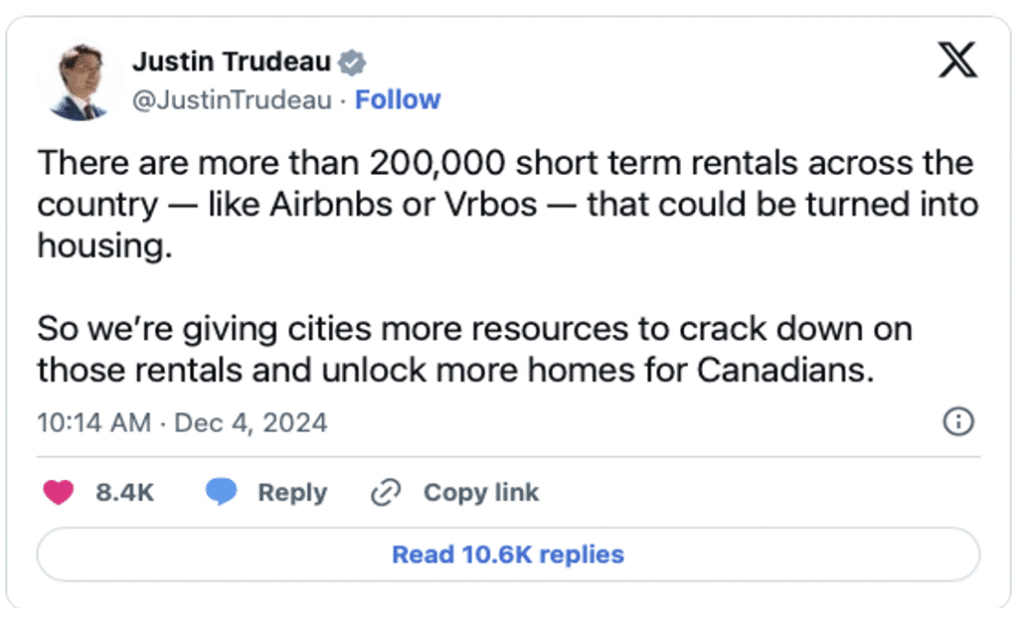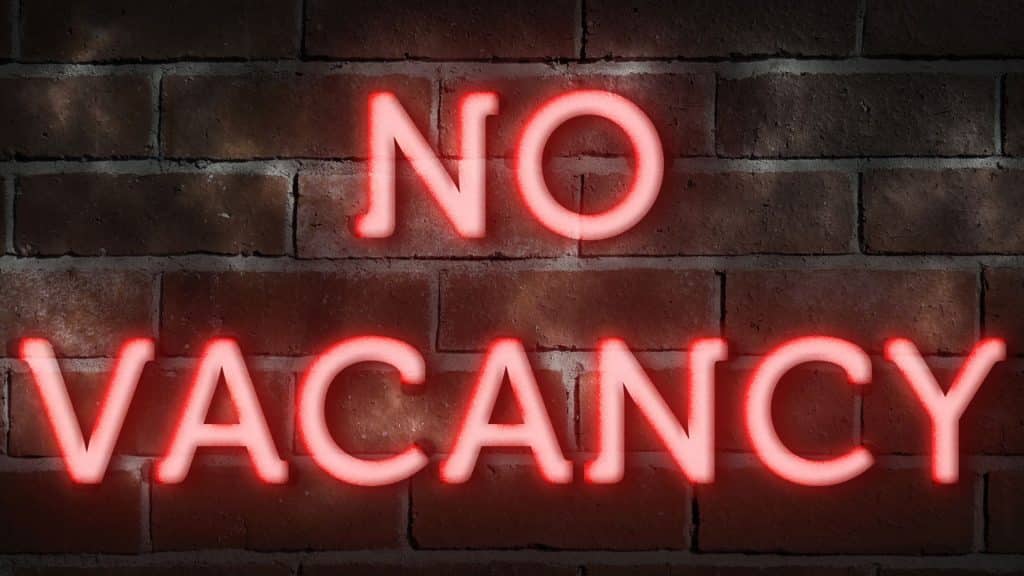If you’re running a short-term rental in Canada, recent news probably has you rethinking your strategy. Prime Minister Justin Trudeau announced a $50-million federal plan to crack down on Airbnb and Vrbo listings that don’t follow local regulations. The goal? To free up short-term rental properties for long-term housing and address Canada’s housing crisis.

For short-term rental hosts, this crackdown could mean stricter rules, more inspections, and higher costs. Add in a recent tax ruling that could classify some rental properties as commercial (with hefty tax implications), and it’s clear that the short-term rental market is shifting in Canada. So, what does all of this mean for you as a host? And, more importantly, how can you adjust your game plan to keep your income steady? Let’s break it down.
What’s Changing for Short-Term Rentals in Canada?
Canada’s short-term rental market has exploded over the past decade. Platforms like Airbnb made it easy for homeowners to turn extra space into cash. But as the number of listings grew, so did concerns about the impact on housing availability and affordability. Critics argue that short-term rentals pull homes off the market, driving up rents and shrinking options for people looking for long-term housing.
To address this, Trudeau’s $50-million Short-Term Rental Enforcement Fund is giving cities more resources to crack down on rule-breaking rentals. This could mean:
- More inspections: Cities will have funding to hire staff who can investigate listings and ensure they meet local rules.
- Stricter licensing: Hosts may need to register their properties and prove compliance with zoning laws or principal residence requirements.
- Fines for non-compliance: Violations could result in costly penalties, forcing hosts to rethink their approach.
On top of that, a recent Tax Court of Canada decision has added another layer of complexity. Properties used primarily for short-term rentals may now be classified as commercial, which means they’ll be subject to the Harmonized Sales Tax (HST) if sold. For a $1 million property, that’s an additional $130,000 in taxes—enough to make anyone think twice.
How Will These Changes Impact Hosts?
The combination of tougher enforcement and tax liabilities creates a challenging landscape for short-term rental operators. Here are some of the biggest concerns facing hosts:
1. Increased Costs: Complying with stricter rules—like registering your property or upgrading to meet safety codes—can be expensive. Add in potential taxes, and the financial equation for short-term rentals starts to shift.
2. Fewer Listings: If cities enforce rules more effectively, many non-compliant listings could disappear. While this could mean less competition, it also raises the stakes for staying on the right side of the law.
3. Uncertainty: Between local regulations, federal policies, and tax rulings, hosts are facing a lot of uncertainty. Many are questioning whether short-term rentals are still worth the hassle.
What Can Hosts Do?
While the landscape is changing, short-term rentals aren’t disappearing altogether. Here’s how you can adapt to the new reality and keep your rental business profitable:
Get Your House in Order
Start by making sure your listing follows all local rules. This means registering your property if required, adhering to zoning laws, and meeting safety standards. If you’re not sure what’s required, reach out to your municipality or a real estate lawyer to clarify. Staying compliant not only keeps you out of trouble but also ensures your listing stays active as enforcement ramps up.
Reevaluate Your Business Model
If the new regulations or tax implications make short-term rentals less appealing, consider other options:
- Mid-Term Rentals: Cater to people who need housing for a few months, like professionals on temporary assignments or students. These rentals often avoid the regulatory headaches of short-term stays.
- Long-Term Rentals: Shifting to traditional leases may not offer the same flexibility, but it provides steady income and eliminates the risk of non-compliance with short-term rental laws.
Know Your Tax Situation
The recent tax ruling that reclassifies some short-term rental properties as commercial could have serious financial implications. If your property falls into this category, you could face HST charges on its sale. Talk to an accountant or tax advisor to understand how this affects you and what steps you can take to minimize your tax burden.
Focus on Quality Over Quantity
As enforcement increases, staying competitive will mean offering a standout experience. Professional photos, upgraded amenities, and thoughtful touches can attract higher-paying guests and keep your rental profitable even as costs rise. A well-reviewed, compliant listing will always perform better than a questionable one flying under the radar.
Diversify Your Income
If short-term rentals no longer make sense for your property, think creatively about other ways to earn income:
- Rent unused spaces for storage.
- Partner with local businesses to host events or pop-up shops.
- Offer your property as a location for film or photo shoots.
A Global Trend
Canada isn’t the only country tightening the reins on short-term rentals. Cities around the world are doing the same, driven by similar concerns about housing shortages and affordability. New York City, for example, recently enacted strict rules that require hosts to live on-site and limit the number of guests to two. Violations come with steep fines, effectively shutting down large-scale Airbnb operations.
These global trends make it clear that the golden age of unregulated short-term rentals is over. Platforms like Airbnb are being forced to adapt, and so are hosts.
What’s Next for Canadian Hosts?
The crackdown on short-term rentals is a wake-up call for anyone relying on platforms like Airbnb or Vrbo. While these changes create new challenges, they also offer an opportunity to rethink your strategy and make sure your business is built to last. By staying compliant, adjusting your approach, and exploring new income streams, you can weather this shift and continue to earn from your property.
Change is never easy, but it’s part of the game in real estate. For hosts willing to adapt, there’s still plenty of opportunity to succeed in Canada’s evolving short-term rental market.




